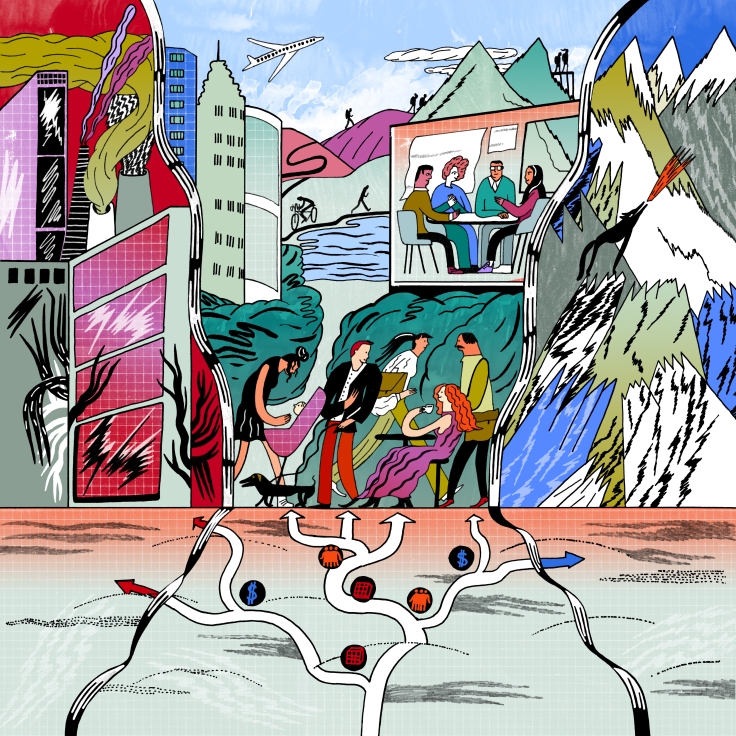The Department of Human Dimensions at CzechGlobe is a partner in the SSH Centre Project. SSH Centre is supporting the visibility and uptake of social science and humanities research in climate, energy and transport policy in Europe. As part of the project, the team is running a series of initiatives to support SSH researchers. The SSH Centre call for proposals for book chapters from interdisciplinary small teams has just been opened – the project will support your team with up to €7,500.
Call headlines
The SSH CENTRE is funding 30 new interdisciplinary collaborative teams up to €7,500 to develop a single policy or governance recommendation related to the EU Green Deal’s commitments on climate, energy or mobility. Deadline for applications is 4 June 2023.
The recommendation developed by each collaborative team will be published as a short chapter in an open access book (focusing on climate, energy or mobility) AND will be submitted to the European Commission’s Directorate-General for Research and Innovation.
Why have we created this opportunity?
Despite calls for interdisciplinary research for sustainability, the social sciences and humanities are often under-represented in funding calls and funded projects. This leads to less SSH evidence being generated directly for policy, and less visibility of SSH evidence to policy-makers. The SSH Centre has been funded by the European Commission, under Horizon Europe funding, to find ways to support greater visibility of SSH in climate, energy and transport research and policy in Europe.
The project is trying a number of initiatives to support SSH researchers, and this support to collaborative chapter-writing teams is one of them. The intention is that new SSH-STEM collaborations will be supported with the funding. These new teams will then specifically write policy-relevant (broadly interpreted) chapters, thus ensuring the visibility of SSH for climate, energy and transport policy. The SSH Centre will also be learning from the experience of supporting the teams to see what works and what doesn’t. We will then create recommendations for researchers and science-policy makers about how to best support SSH visibility and uptake.
What activities can be funded?
There is intentional flexibility in the collaborative work that can be funded – from literature reviews to stakeholder workshops, visiting fellowships to participatory evaluations, etc. The only requirements are that: (1) the activities span SSH and STEM; and (2) the recommendation moves beyond simply highlighting failures.
As well as funding the interdisciplinary collaborative work, the SSH CENTRE is also hosting a virtual symposium on Tuesday 10th October 2023, where representatives from the 30 collaborative teams will have the opportunity to share initial thoughts and receive support in writing their chapter.
Who is eligible?
Funding is available to collaborative teams composed of at least 4 researchers based at institutions within the EU or a Horizon-associated country (including the UK), with a minimum of 2 SSH researchers and 2 STEM researchers.
Who are the book editors?
Colleagues are welcome to reach out to each editorial team, should they have any queries:
- Ester Galande Sanchez, Alevgul Sorman, Violeta Cabello (Basque Centre for Climate Change), Sara Heidenreich, Christian Klöckner (Norwegian University of Science & Technology)
- Ami Crowther, Chris Foulds, Rosie Robison (Anglia Ruskin University), Ganna Gladkykh (European Energy Research Alliance)
- Imre Keseru, Samyajit Basu (Vrije Universiteit Brussel), Tomas Moe Skjølsvold, Marianne Ryghaug (Norwegian University of Science & Technology)
Further details on the application process and the scope of each book, plus the link to express your interest, can be found here: https://sshcentre.eu/call-for-participation/













Leave a comment